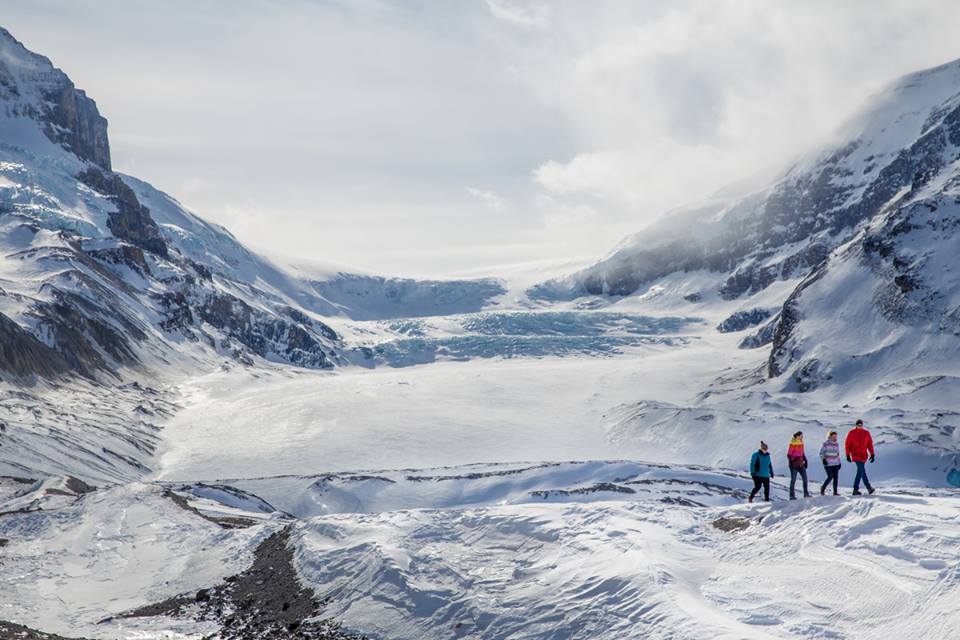
BANFF, Alta. — Parks Canada is urging backcountry users to stay out of avalanche terrain this weekend after a winter storm led to an extreme danger rating in Banff, Yoho, Kootenay and Jasper national parks.
The latest avalanche bulletin for the mountain parks in Alberta and British Columbia said that the areas have received up to 70 centimetres of snow in recent days which is overloading a weak layer from mid-December.
Officials said the rating for Friday was extreme, which means people should avoid all avalanche terrain because natural and human-triggered avalanches are certain.
“Those high avalanche ratings are going to continue through to tomorrow,” Lesley Matheson, a spokeswoman for Banff, Yoho and Kootenay national parks, said Friday. “That’s because we got a lot of snow, we had some warm temperatures and strong to moderate winds.
“It’s worth playing it safe right now. We’re really recommending not travelling into any avalanche terrain.”
The forecast said snowfall was expected to taper off across the region Friday night.
Friday’s avalanche bulletin for Banff, Yoho and Kootenay lowered the danger rating to high, which is still very dangerous, and suggested people stay clear of avalanche terrain.
“Slopes that have not avalanched are ripe for human triggering,” said the bulletin.
Officials reminded visitors who travel into the backcountry that they are responsible for their own safety.
“Make sure you are checking the daily avalanche bulletin before you head out, you are prepared for your day out in the backcountry, you’ve got the right equipment and training … and you’ve left your trip plan with someone,” said Matheson. “Be responsible for your safety, play it safe and make sure you’re making good decisions.”
Motorists travelling through the mountain national parks were also being advised to check conditions before heading out.
Highway 93 North, also known as the Icefields Parkway, through Banff and Jasper national parks is to remain closed until at least Sunday for avalanche control work after receiving between 60 and 80 centimetres of snow.
Control work was also planned for late Saturday morning on the Trans-Canada Highway, leading to intermittent closures near Field, B.C.
Avalanche Canada said heavy snow in B.C. has created a high possibility of slides on south coast and Vancouver Island mountains, as well as through most of the province’s east-central and southeastern regions.
It means very dangerous avalanche conditions also exist outside the national parks.
“There’s really not a lot of difference between extreme and high,” said Grant Helgeson, senior forecaster for Avalanche Canada. “What’s happening when it’s extreme is we had very large avalanches that were occurring almost everywhere.
“As we move down to high, we’re still at very dangerous avalanche conditions and travel in avalanche terrain is not recommended.”
RCMP in Pemberton, B.C., said late Friday that they are investigating a death in the backcountry near Pebble Creek.
They said a group of skiers was in the area Thursday when an avalanche buried one person. The other skiers were able to locate that person with their beacons but the skier did not survive.
Helgeson said conditions across much of B.C. should improve throughout the weekend.
“As the storm exits to the east, we anticipate avalanche dangers coming down somewhat quickly,” he said from Revelstoke, B.C. “Natural avalanches remain possible, but human-triggered avalanches become the bigger story.”
He said anyone who is heading into avalanche terrain needs to be properly trained and be equipped with a beacon, probe and shovel.
“Folks really need to think about choosing somewhat conservative terrain as they move into the mountains this weekend,” said Helgeson.
“It’s going to be hard because visibility is probably going to get better this weekend, we’re all feeling great after the holidays and it’s natural to be drawn up into the bigger features. But it’s going to be time to be conservative and show some restraint this weekend.”